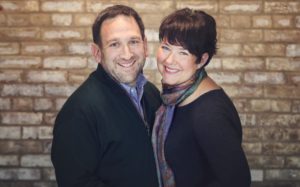There was a lot of crying in our home over the first days of the new year. More accurately at the end of the days. When we would get ready for bed. Take off Cassie’s back brace and turn off the lights. There in the dark we found ourselves engulfed in sadness. Sad that the holidays were over. Sad that Cassie was still in a horrible back brace. Sad that we had little to look forward to. Sad about the pandemic and the state of the world (and that was before the coup attempt). And of course sad that on top of it all, Cassie still has Metastatic Breast Cancer. This unrelenting disease that is always with us.
We also felt disconnected. Dan was exhausted from days of holiday preparations and cooking. He needed to sleep and sleep some more. He wanted to take some long walks to clear his head. To lose himself in a book without talking to anyone. Cassie, while super understanding of Dan’s exhaustion and supportive of his self-care also needed him close and present. In times of greater sadness and loneliness it only makes sense that you want to be as close as possible to those you love most. But it also presents a conundrum that we have experienced at different points (usually very stressful points) since Cassie’s MBC diagnosis.
How do you center both the care-getter’s need for more sustained connection at especially hard and challenging times and the caregiver’s need for greater self-care at those exact same moments?
Neither of us wants the other to suffer. Both of us are naturally inclined to sacrifice our own needs. Neither of us wants to make the other sad. Both of us see the need for Dan’s intentional self care and for deeper connection as a couple.
Figuring out how to balance all of this is a recurring and core conundrum for couples dealing with a late-stage cancer diagnosis.
We’ve been trying to talk about it more explicitly — and not just late at night when we are tired from the day and the darkness is both literal and figurative. We are also working on getting back into more of a routine (abandoned since Cassie’s surgery). We try to think of the mornings as our “alone” or individual time — perfect for calling friends, walking, reading, journaling, going back to sleep or working out. Doing all of that may not be possible in the limited morning hours but some of it most certainly is and right now that’s more than sufficient. It also leaves the afternoons and evenings for doing things together — being more connected.
Empathy. Intentional conversations. Developing routines and practices that work for both of us. We find ourselves returning to these tools over and over on this Metastatic Breast Cancer (and now back surgery) journey. Yet we also find ourselves forgetting them over and over again too. We now see that’s the nature of being in a perpetual crisis of unrelenting stress and anxiety. It’s easy to forget what you know. To lose sight of what’s working. To abandon routine. To stop sharing what you’re feeling.
So we re-learn as we need. Re-discover as we have to and remind ourselves that together we can do this.
